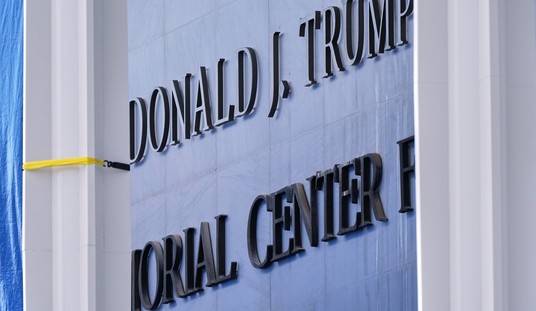There are exceptions, but when it comes to Common Core the loudest and most aggressive advocates tend to be organizations and individuals who are financially invested in Common Core or whose boards are loaded up with lobbyists who make money off supporting Common Core.
Unfortunately, within the conservative movement, the crony capitalist tendencies of Washington are infiltrating and polluting organizations who claim to be conservative. It is not with Common Core, but with something else. Its advocates call it the “Marketplace Fairness Act.” They call it that because what it actually is, is the internet sales tax, which is not all that popular. These “conservatives” not only support an internet sales tax. They also support forcing businesses in states with no sales tax to, by federal fiat, start collecting sales taxes.
Certainly, like with Common Core, there are exceptions. There are those who support the internet sales tax because they think it is conservative for a business in Maine to be forced, by federal law, to collect sales taxes for Florida merely because a Florida resident bought something online from Maine. There those who have reviewed the facts and actually thinks imposing a sale tax regime on businesses in states with no sales tax is somehow conservative. They are good people, but they are just be badly mistaken. They are also, I suspect, in the minority of those who support the internet sales tax.
More common, in the case of conservative advocacy groups, it is that the conservative group has gotten a check from a major American corporation, other interested advocacy group, or has filled up its board with lobbyists who make money lobbying for the internet sales tax. These lobbyists have used their influence to steer the conservative group toward the pro-tax regime. They have helped steer conservative voices in that direction. They have embedded their crony capitalism into the heart of the conservative movement in an attempt to make it pro-tax.
Slowly, over time, corporate dollars plotting to shut down their smaller competitors, have hired Republican oriented lobbyists. These lobbyists have used, in effect, walk around money to shift organizational positions, votes in Congress, and talking points in favor of the big crony capitalists at the expense of smaller, entrepreneurial competitors.
From intentional influence and walk around money, the crony capitalists, lobbyists, and corporate interests moved on to calling in favors and relying on the good natured trust of friends in the conservative movement. People and groups who would have never supported an internet sales tax suddenly started shifting because they trusted the advocates and never saw the stream of money that had started the flow of misinformation, deceit, and cleverly crafted talking points and op-eds. Some of these outside people never knew they were getting played by friends on commission and some have gone so far over they’d never admit they were wrong or that they did get played.
The lobbyists and corporate interests, using walk around money and friends, started pulling conservative groups in the direct of the crony capitalists and corporate interests intent on shutting down upstart competition. The conservative organizations, now so heavily invested and, in some cases, funded by the tax hikers, have dug in their heels and insist this tax hike is conservative.
The Marketplace Fairness Act supporters, a/k/a people who want to tax the internet, say it is just fair. Technically, when you buy something online you, the consumer, are supposed to pay the sales tax. But few, if any, actually do. So the geniuses who support the internet tax have come up with a great idea. They will make the businesses in every state keep up with the sales tax regimes of all the other states. They will force the burden of one state’s tax collection schemes onto the businesses of other states.
In some cases, businesses residing in states with no sales tax will be forced to serve as tax collection agents of other states. How exactly is it conservative to impose a sales tax collection regime on businesses that choose to operate in states without sales taxes?
The Supreme Court long ago held that a business in State X cannot be forced to collect sales taxes for State Y when the business has no relationship to State Y, other than a citizen of State Y bought a good from the business in State X. If we wanted to talk conservative, it would arguably make more sense to have the business in State X charge State X sales taxes for a purchase in State X, even if over the internet. But high sales tax states hate that because they think they will be at a competitive disadvantage, horizontal federalism be damned.
Major corporations like this because it gives them a competitive advantage. For small businesses — for the mom and pop shop in Maine — it is pretty hard to keep up with the tax regimes of every other state.
“Don’t worry,” say the advocates of the internet sales tax. “We give small businesses an exception. Their sales have to exceed a certain amount per year to be subject to the law.”
That, right there, is an admission against interest that this is a new, costly, and complicated regime. It keeps small businesses from being able to become big businesses by imposing major regulatory and financial burdens once they cross a revenue threshold.
It keeps big businesses from having to look over their shoulder. It shuts down competition. It is precisely the sort of crony capitalist scheme most Americans reject.
But within the conservative movement, more and more corporate dollars are being spread around directly and indirectly to claim this legislation — legislation Barack Obama and the biggest tax and spenders in America support — is somehow conservative.
If the conservative group you support is in favor of the Marketplace Fairness Act, you might want to make sure it is because they’re just screwed up in the head and not actually under some corrupting influence. The Marketplace Fairness Act is not a conservative solution to any problem.













Join the conversation as a VIP Member